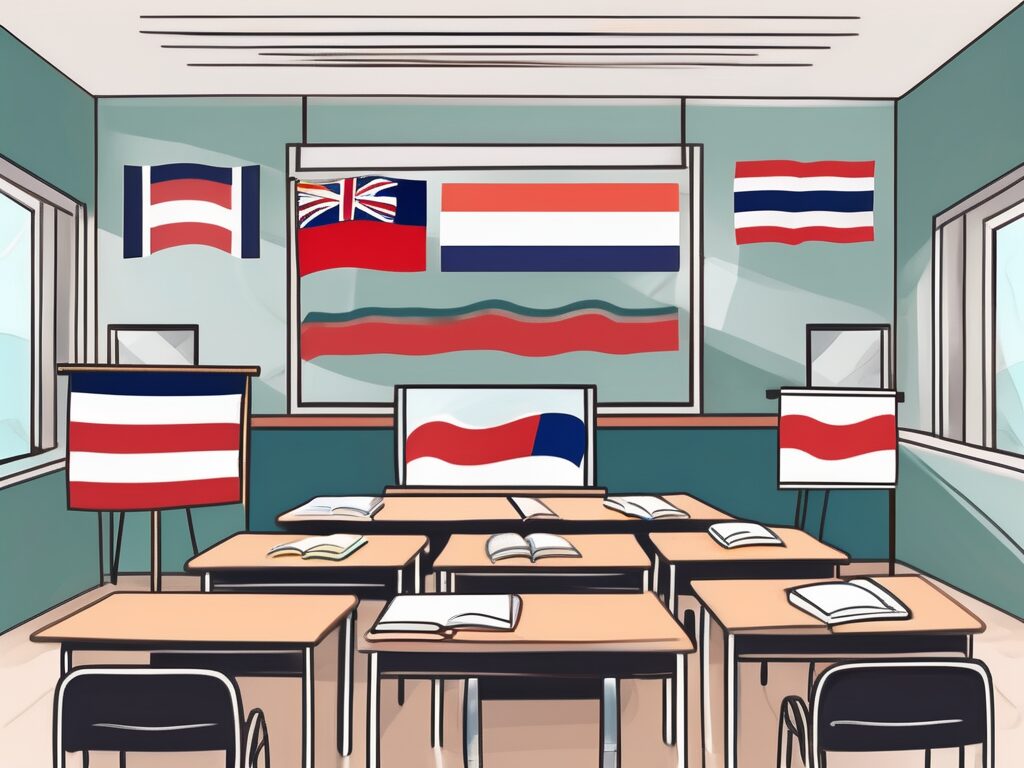In the realm of education, bilingualism is a hot topic. It’s a method of instruction that has the potential to open doors to global opportunities for students. However, implementing a successful bilingual education system is not without its challenges, particularly in countries like Thailand where the local language is vastly different from the secondary language, usually English. This article will delve into the complexities of bilingual education in Thailand, exploring the challenges and potential solutions.
The Current State of Bilingual Education in Thailand
Thailand’s education system has been undergoing a transformation over the past few years. The Thai government has recognised the importance of English proficiency in the global economy and has made efforts to improve English language education. One of these efforts is the implementation of bilingual education in schools.
However, the road to successful bilingual education is not smooth. Despite the government’s efforts, there are significant challenges that hinder the progress of bilingual education in Thailand. These challenges range from lack of resources and trained teachers to cultural and societal issues.
Lack of Resources
One of the main challenges in implementing bilingual education in Thailand is the lack of resources. Many schools, particularly those in rural areas, lack the necessary textbooks, materials, and facilities to provide effective bilingual education. This is akin to trying to cook a gourmet meal without the right ingredients or kitchen equipment. The end result is unlikely to be satisfactory.
Moreover, the lack of resources also extends to the availability of qualified bilingual teachers. Teaching in a bilingual setting requires a specific set of skills and knowledge, which many teachers in Thailand do not possess. This is like having a football team without a coach who understands the game’s rules and strategies. The team is unlikely to perform well.
Cultural and Societal Issues
Another significant challenge is the cultural and societal issues surrounding bilingual education in Thailand. Many Thais are proud of their language and culture, and there is a fear that promoting bilingual education might lead to the erosion of the Thai language and culture. This is similar to the concerns raised in other countries, like France, where there is a strong emphasis on preserving the national language and culture.
Moreover, there is a societal perception that bilingual education is only for the elite or the wealthy. This perception creates a divide and can discourage parents from enrolling their children in bilingual programs. It’s like thinking that only the rich can afford to eat at fancy restaurants, which is not necessarily true.
Overcoming the Challenges
Despite these challenges, there are ways to improve the state of bilingual education in Thailand. These include increasing resources, improving teacher training, and addressing cultural and societal issues.
Increasing Resources
Addressing the lack of resources is a crucial step towards improving bilingual education in Thailand. This could involve increasing the budget for education, sourcing more bilingual textbooks and materials, and improving school facilities. It’s like giving a chef the right ingredients and equipment to cook a gourmet meal. With the right resources, the results are likely to be much better.
Furthermore, increasing the number of qualified bilingual teachers is also essential. This could be achieved through better teacher training programs and incentives to attract more teachers to the field of bilingual education. It’s like recruiting a knowledgeable coach for a football team. With the right guidance, the team is likely to perform better.
Addressing Cultural and Societal Issues
Addressing cultural and societal issues is also crucial. This involves promoting the benefits of bilingual education and dispelling the myth that it leads to the erosion of the Thai language and culture. It’s like reassuring the French that their language and culture will not disappear just because English is also taught in schools.
Moreover, it’s important to break down the societal perception that bilingual education is only for the elite. This could involve making bilingual education more accessible and affordable for all students, regardless of their socio-economic status. It’s like making gourmet food accessible to everyone, not just those who can afford to dine at fancy restaurants.
Conclusion
In conclusion, while there are significant challenges in implementing bilingual education in Thailand, these are not insurmountable. With increased resources, improved teacher training, and a shift in societal perceptions, it is possible to improve the state of bilingual education in Thailand. It’s a journey that requires commitment and effort, but the potential benefits for Thai students are well worth the endeavour.
After all, bilingual education is not just about learning a second language. It’s about opening doors to global opportunities, fostering cultural understanding, and preparing students for a rapidly changing world. And these are benefits that every student, regardless of their background or socio-economic status, should have access to.
Empower Your Bilingual Teaching Career with IPGCE
Are you inspired to tackle the challenges of bilingual education and elevate your teaching career in Thailand and beyond? IPGCE is your gateway to achieving Qualified Teacher Status and unlocking global opportunities. With our International Postgraduate Certificate in Education, you’ll overcome the barriers of stringent qualifications, experience career progression with a significant increase in promotion rates and salary, and connect with a vibrant professional community. Embrace the flexibility of our online study options and enrich your understanding of international curricula. Join the UK’s #1 Teacher Training Course and transform your potential into success. Enroll now and be part of the change in bilingual education.

